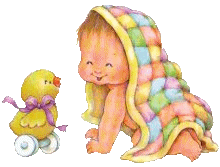Eating for Two
Diet
What your diet needs to consist of:
Prenatal vitamins
and the following:
Though it may seem like a time to cut loose and eat whatever you want, you aren’t actually eating for two separate people. In fact, you really only need a little bit extra to help to supplement your baby’s development. (This means you should try to avoid eating two entrées with dinner every night).
It is suggested that expectant mothers add about 100 calories to their diet in pregnancy during the first trimester, and about 300 calories during the second and third. This would look like an extra nutritious snack, including a piece of fruit, yogurt, and a slice of bread, or its equivalent. Don’t worry about indulging now and then – you should treat yourself when you feel like it – just don’t go overboard too often.
Folic Acid
Folic acid, also known as folate, plays a huge role in helping your baby form his body tissues and cells, especially in his brain and spinal cord. By getting the appropriate amount of folic acid, you can help prevent your baby from developing serious neural tube defects. Folic acid is especially important in the first few weeks of pregnancy, and should be taken via supplements throughout the first trimester. You can also get extra folic acid by eating:
- leafy green vegetables
- oranges
- bananas
- bread and fortified cereals
Iron
Iron is an integral part of a proper diet during pregnancy. It is necessary to help increase the blood supply to your placenta during pregnancy. This will ensure that your baby gets the proper nutrition during her development. Iron is found in:
- meats, including fish, poultry, and red meat
- dried fruits
- spinach
- iron-fortified cereals
Calcium and Vitamin D
Your baby needs calcium and vitamin D to build strong bones and teeth, as well as healthy skin, muscles, and organs. Expectant moms need around 1000 to 1300mg of calcium daily, so you should be sure to consume extra calcium-rich foods or take a calcium supplement. Calcium is found in:
- milk and milk products
- cheese
- tofu and other soy beverages
Daily Pregnancy Diet
During your pregnancy, it might be helpful to follow a pregnancy diet that tells you exactly how much of each type of food you will need every day. A healthy pregnancy diet includes all four food groups.
Grains: Grains are those foods that contain mostly starches, and provide you with carbohydrates and natural sugars to keep your strong. Try to eat between 6 and 11 servings of grain every day for a healthy diet during pregnancy. One serving of a grain product might include:
- 1 slice of bread
- 1/2 cup of cooked pasta
- 1/2 cup of cooked rice
- 3/4 cup of cold cereal
Fruit and Vegetables
Fruit and vegetables are excellent sources of vitamins and minerals, including vitamin C, vitamin D, and iron. Try to eat at least 6 to 12 servings of fruits and vegetables a day. These could include:
- one piece of medium-sized fruit
- 1/2 cup of 100% fruit juice
- 1 cup of salad
- 1/2 cup of cooked or raw vegetables
Milk Products
Milk products are essential to your growing baby’s health. While you are pregnant, you will need to consume more milk products than you used to. Aim for at least 4 servings, which may include:
- 1 cup of low-fat milk
- 1 ½ ounces of hard cheese
- 1 cup of yogurt
Protein Products
Protein is the main force that helps our bodies to build and repair tissues. During pregnancy, try to get at least 2 to 3 servings of protein a day. This could include:
- 3 ounces of lean red meat, fish, or poultry
- 1 cup of beans
- 1/3 cup of tofu
Foods To Avoid During Pregnancy
While there aren’t many restrictions, there are a few items that you should avoid eating during pregnancy, because they could potentially harm your baby. Eliminate or reduce the amounts of these foods:
- Alcohol and caffeine: alcohol should be eliminated from your diet entirely, to reduce the chance of premature birth and fetal alcohol syndrome. Caffeine products should be reduced dramatically, as they can dehydrate you and deplete the amount of vitamins and nutrients in your body.
- Raw foods such as uncooked or cured meats, sushi, raw shrimp, oysters, and eggs: these can contain bacteria that can make you and your baby very sick.
- Unpasteurized foods such as soft cheeses, certain milks, and ciders: unpasteurized products contain bacteria which can pass on listeria, a serious infection.
- Fish that contain high levels of mercury, including shark, King Mackerel, swordfish, and tilefish: high levels of mercury can cause serious side effects.
